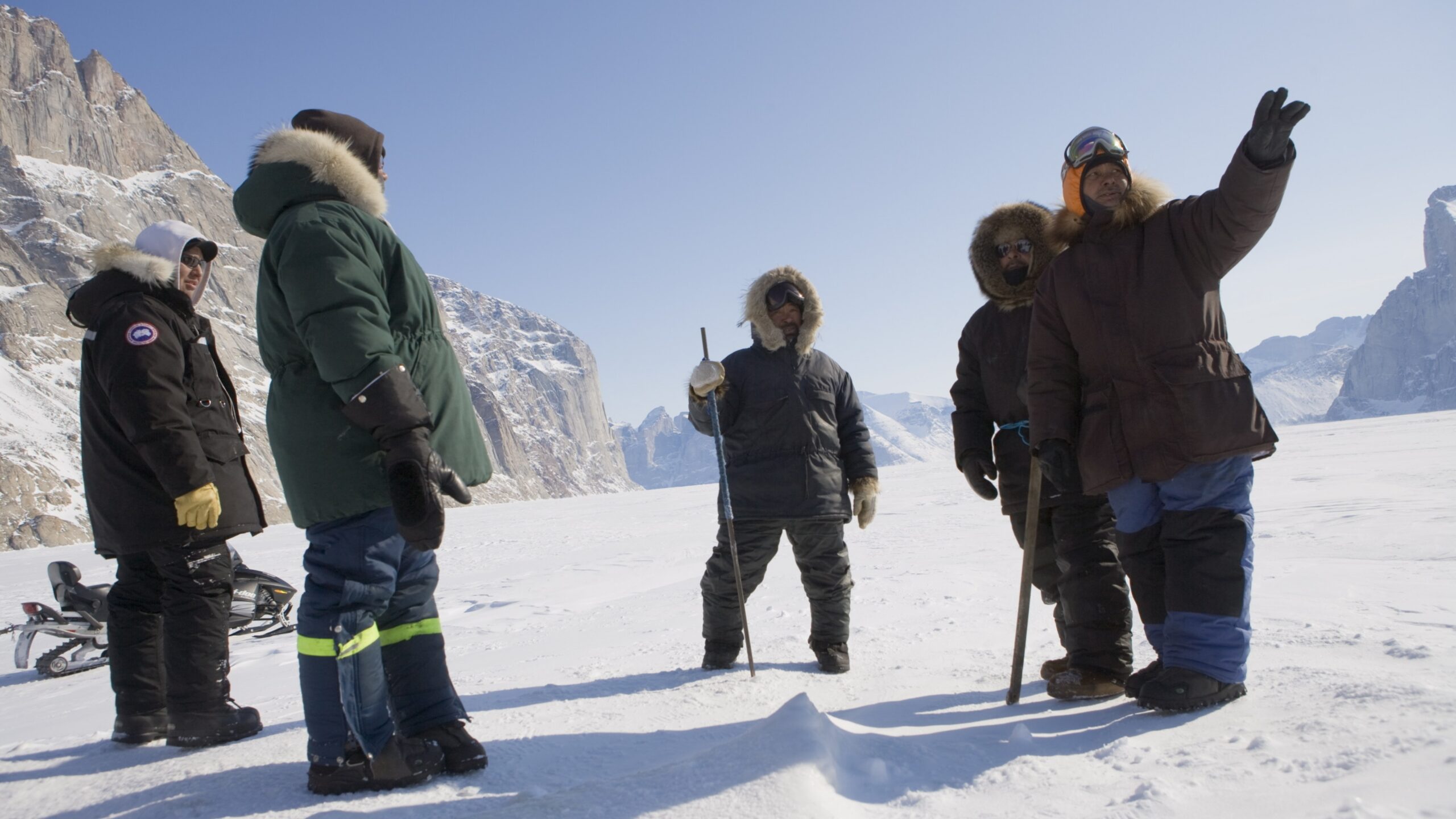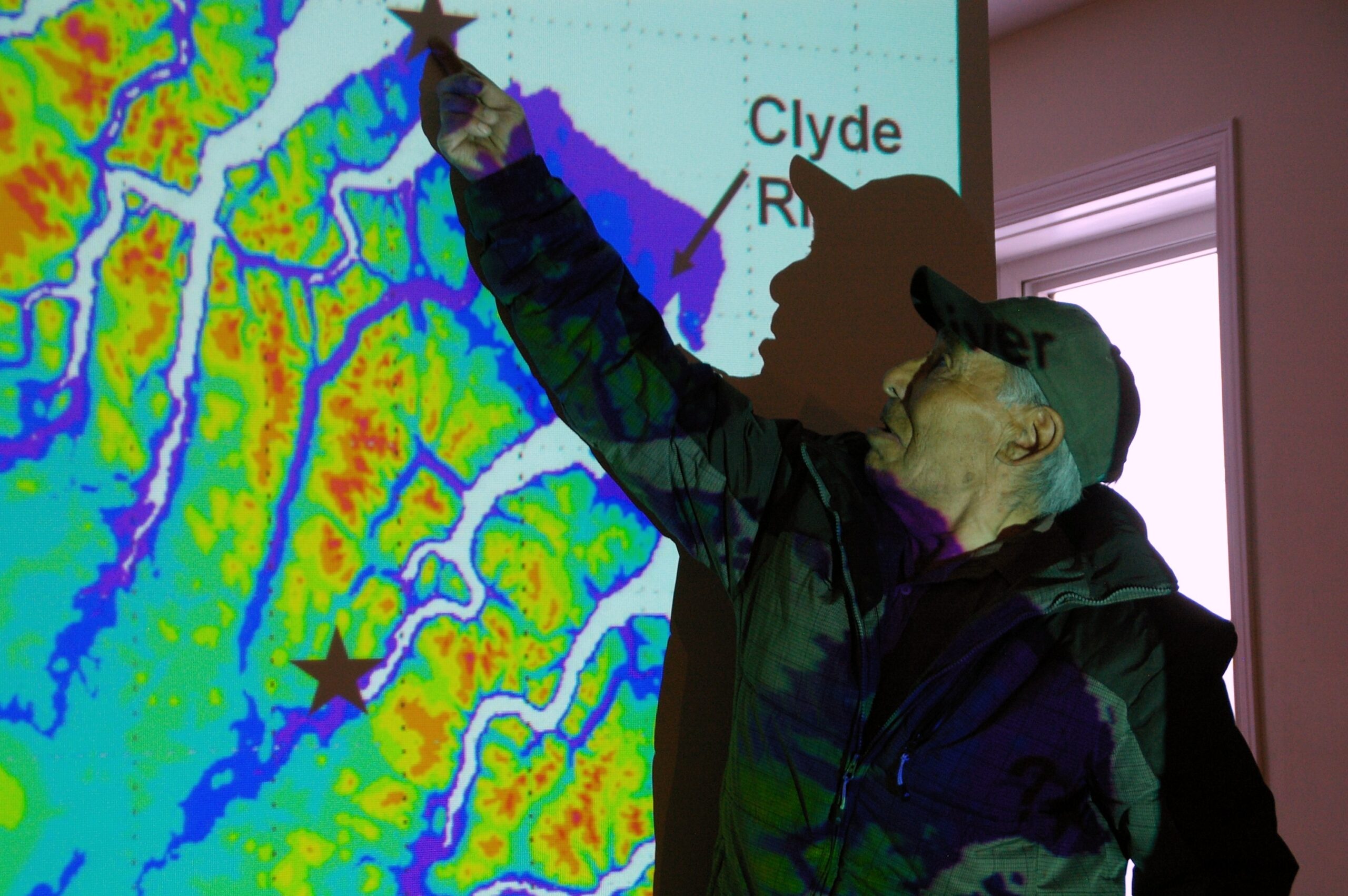We support Inuit self-determination in research and turn knowledge into action.
Inuit are the original researchers and observers of our homeland.
We blend traditional knowledge with cutting edge technologies to advance understandings about our environment.

Research strengths:
- Inuit Qaujimajatuqangit (IQ)
- Environmental research and monitoring
- Weather, sea ice, and climate change
- Hunting and harvesting research
- Research and field logistics
- IQ studies and oral history research
- Linking land-based learning and research approaches
- Aerial imaging and aerial mapping research
- (Standard) mapping and participatory mapping
- Multidisciplinary and interdisciplinary research; co-production of knowledge
- Community engagement
- Community-to-community knowledge exchange and peer-to-peer training

Our research has been published in academic journals, books, online resources, and presented at national and international conferences. Our projects have been featured in documentary films, IMAX, magazines, television, and our work has received awards in Nunavut, Canada, and internationally.
Ittaq is committed to supporting and implementing the practices for respectful and beneficial research for all Inuit outlined in the National Inuit Strategy on Research developed by Inuit Tapiriit Kanatami (ITK).
Current core research projects:
- Kangiqtugaapik (Clyde River) Weather Station Network & Silalirijiit Project
- Clyde River Knowledge Atlas
- InReach-supported Sea Ice Observing and Monitoring
- Ongoing IQ and Oral History Research
- Angunasuktiit Program and related research
- Nunavut Network Environment for Indigenous Health Research (NU NEIHR)
- Ongoing Digital Media and Drones Research and Mapping Projects
Video: A quick view of some of our research activities in one minute and forty-seven seconds.
Visiting research
Ittaq supports visiting researchers through the Nunavut Research Institute (NRI) licensing process.
At this time, Clyde River requires that all researchers seeking a license to conduct research in the community first submit a Letter of Intent (LOI). The LOI template can be requested/submitted from/through NRI or directly from/to Ittaq. LOIs that are approved will then be invited to submit a full NRI application.
Visiting researchers are encouraged to contact Ittaq as early as possible in project development in order to understand if their project is of interest, priority, and a good fit for Clyde River. Early communication can establish if the project meets our requirements for true benefits to the community.
We welcome projects that offer genuine collaboration and support Inuit leadership of research.
